Table of Contents[Hide][Show]
Washing your face may seem like a simple task, which it is, but you need to do it properly to get the optimal effects and keep your skin looking radiant and youthful. If you’ve ever wondered what the right way to wash your face is, then you’re not alone. Most people assume that splashing a bit of water on your face does the trick, but there are better ways to get a great cleanse.
To learn how to wash your face correctly, you must first consider your skin type. Different skin types thrive on varying face washing routines.
Why Is It Important To Wash Your Face?
Washing your face can help eliminate grime, dirt, dead skin cells, makeup, and anything that can clog your skin’s pores. We recommend washing your face twice a day, once in the morning and once before bed, as cleansing your face regularly will help maintain radiant-looking skin. Because your skin is exposed to environmental stressors on a daily basis—from things you apply on your face to dust and pollution—when you clean your face, you’re removing all of this buildup that settles on your skin.
Cleansing is the first and arguably most important step in your skin care routine. If done incorrectly, dirt and pollution may accumulate on the surface of your skin—which can lead to clogged pores and premature formation of fine lines.
Is It Okay To Wash Your Face With Just Water?
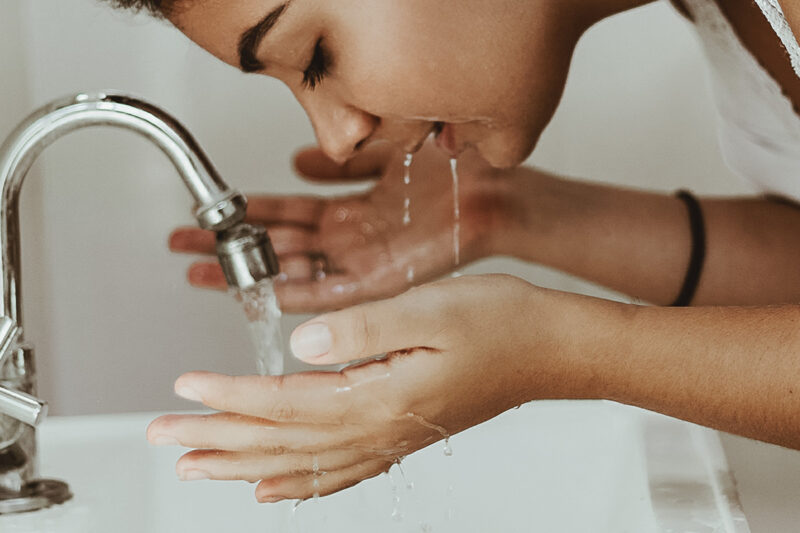
We’ve seen the recent “rinsing with ice water” tip and trend that encourages people to forgo washing their skin everyday, due to skin care products ruining natural oil production. We agree with this to a degree—if you’re using a typical drug-store cleanser (which can also age your skin) that includes harsh surfactants, alcohols, and chemicals, we find that giving your skin a break by rinsing only with water for a few days out of the week can help get your skin back to a renewed state. However, if you are using a gentle, pH-balanced cleanser made with hydrating ingredients like aloe that won’t damage or strip your skin, then you are welcome to cleanse your face everyday. Or opt for a cleansing oil, so that you can reintroduce amazing, nutritive oils back into your skin.
On days that you feel your face isn’t too dirty, using water alone will suffice. Putting nothing on your face can allow the skin to get back to a state of producing its normal rate of oil, especially if you have been consistently using a harsh cleanser. Though, we do want to mention that while washing your face with water alone can help you from further stripping your skin’s natural oils, going too long without a healthy cleanser can result in clogged pores, causing your skin to look dull, textured and weathered.
After a long day at work or walking around, your skin will have accumulated a lot of dirt, grime, and other effects from environmental stressors. On such days, washing your face with an organic cleanser will help eliminate this dirt and unclog your pores.
What Does a Cleanser Do For Your Face?
A cleanser gets rid of makeup, debris, dead skin, dirt, and other pollutants from the environment that can affect the skin. Cleansing your face can help unclog pores so that your skin can breathe and become purified. If you don’t wash your face most of the time, you’ll end up having dull skin and clogged pores that can result in a lackluster look or a bumpy texture.
Other ways a cleanser can help your skin is by:
- Clearing up debris and buildup for smoother skin.
- Keeping your skin soft, supple, hydrated, and youthful-looking.
- Giving your skin a radiant look.
- Moisturizing your skin with healthy and nutritive oils
- Creating a clean base for the next steps in your skin care routine
How Many Times Should You Cleanse Your Face?
It is advisable to wash your face twice a day, in the morning and before bed in the evening.
However, if you’re using a cleanser with harsh chemicals, this does not apply. You will want to give your skin a break and instead opt for rinsing with water only a few days out of the week.
We also suggest making that switch to a pH-balanced, gentle, non-toxic cleanser soon so that you’re not damaging your skin. Cleansing your face in the morning is a great way to set the tone for the day, and offers you a clean base to work with. Cleansing your face in the evening is great for removing makeup, sunscreen and other dirt accumulated throughout the day, and a wonderful way to wind down. When you cleanse at night with a gentle, pH-balanced cleanser, it also allows the skin to restore itself at night and improve the appearance of skin health.
If you sleep with impurities on your skin, it will keep the skin from renewing because the skin will not receive enough oxygen. Even if you prefer to cleanse your face only once a day, it is best to do it in the evening, so that you will not deprive the skin of vital nutrients. Cleansing in the evening will also allow your skin to better absorb your skin care products skin care products while you sleep.
How To Find The Right Face Cleanse
To find the right cleanser, a great place to start is to first consider what type of skin you have. Your skin type can help you determine what the best ingredients are for the result you are looking to achieve.
Face Cleanser for Dry Skin
Ingredients like aloe and coconut oil are suitable for dry or mature skin since they add hydration and moisture to your skin. But when choosing face cleansers, if you have dry skin, steer clear of cleansers that have a high percentage of ingredients like witch hazel and willow bark, as they can potentially increase the dryness in already dry skin.
Face Cleanser for Oily Skin
When you have oily skin, a gel cleanser or more astringent cleanser will be extremely beneficial. You may also want to consider using a cleanser that has derivatives of salicylic acid—with ingredients like willow bark and witch hazel. A great option for this skin type is a pH-balanced gel cleanser, which will give you a deep cleanse without clogging your pores. If you have oily skin or clogged pores, you can also consider using a cleansing oil to break up the debris and grime, while finishing with a gel cleanser. Cream cleansers may not be the ideal pick for those with oily skin; but if the cleanser is pH-balanced and does not contain harsh surfactants, it should not strip your skin and may feel great. We always recommend trying a product out to see how your skin responds to it.
Face Cleanser for Normal or Combination Skin
If you have normal or combination skin, it may be difficult pinpointing the perfect method for addressing your skin, as you will experience normal or dry skin in some areas and oily in others. You’ll want to stay away from harsh, synthetic chemicals, and find ingredients like tamanu and blue chamomile, which help calm and fortify the skin. Either a gel cleanser or cream cleanser is great for those with combination skin types.
How To Apply Cleanser On The Face
There are a few steps to wash your face. These include:
Put Your Hair Back
Use a headband or hair tie to put your hair back, as it can be unpleasant having hair constantly in your face when you are trying to wash it.
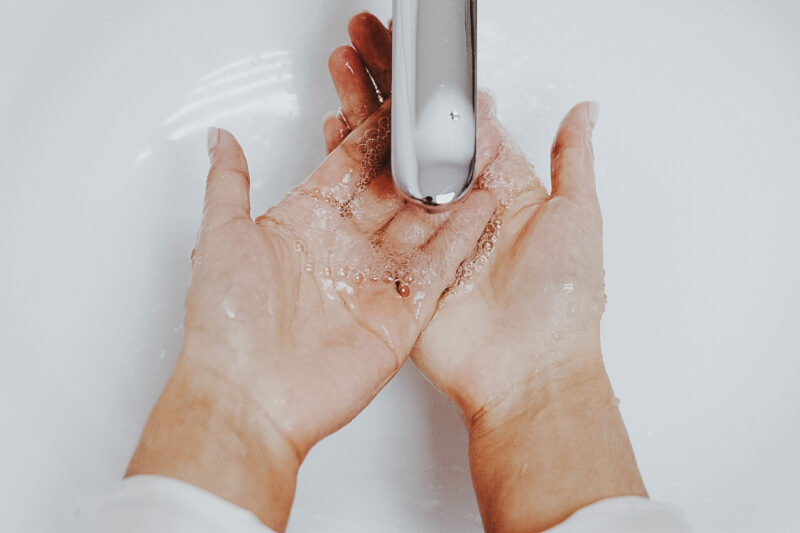
Wash Your Hands & Face
Wash your hands to prevent transferring anymore dirt and grime onto your skin.
Wet your face with a bit of water. Wetting your face helps the cleanser apply smoothly to your skin.
Apply Cleanser to Your Face
Pump your product into your non-dominant hand. With your finger tip, scoop a dime-size amount of the product from your hand and dot the cleanser on the main areas of your face to apply evenly.
Gently Massage Your Face
Gently massage the skin with circular motions, distributing the product across your entire face, jawline, hairline, and neck. Be careful not to apply too close to your eyes as it may cause irritation.
Rinse with Lukewarm Water
Once the cleanser has been thoroughly applied, rinse it off with lukewarm water. When rinsing off your face, avoid using water that’s too hot as it may irritate your skin. To know more about ideal water temperatures for cleansing, read “What Temperature Water Should I Wash My Face With?”
Pat Your Face Dry
Don’t rub the towel on your face as it is delicate. Patting dry is the best way to get rid of the excess moisture.
Conclusion
If you want to know how to clean your face deeply, see the steps we’ve outlined above to get you a refreshed complexion. But most importantly, we stand by the idea that the best way to cleanse your face without damaging your skin’s health is by using gentle, effective Facial Cleansers Made With Organic Ingredients.
Frequently Asked Question
1. At what age should you start cleansing your face?
There isn’t a specific age to start the process of maintaining your skin care routine and cleansing your face. But at around 12 to 15 years, it is common for one to be ready to start the basics like cleansing the face, using a moisturizer, and finishing off with sunscreen.
2. Is it okay to double cleanse your face?
Yes! In fact, double cleansing is a wonderful way to step your routine up a notch. In using two different cleansing products, you can thoroughly tackle all of your cleansing goals in one session. We recommend using an oil-based cleanser as the preliminary formula to dissolve oil that has hardened with impurities, as well as prepare the skin for the benefits of the second cleanse. Then, follow it with a secondary pH-balanced cleanser.
3. Should I wash my face after using a cleanser?
After using your cleanser, you can rinse your face off with lukewarm water. Unless you are intentionally double-cleansing, you do not need to follow up with an additional wash after your initial cleanse, because the cleanser has ensured your face is clean.
4. Can cleansing your face too much cause acne?
Even though cleansing is good for your skin, there is such a thing as too much cleansing. If you are using a harsh cleanser and you are cleansing your face multiple times throughout the day, you risk drying out your skin. And depending on what type of skin you have, exposing your skin to an irritating cleanser continuously can strip the skin of its natural oils, which may throw your oil production out of balance.
5. Should I cleanse my face after working out?
Yes, we recommend cleansing your face as soon as you are done working out (if possible, around fifteen minutes or less after your workout). Leaving sweat on your skin can cause dehydration due to the salt, which can leave you with clogged pores.
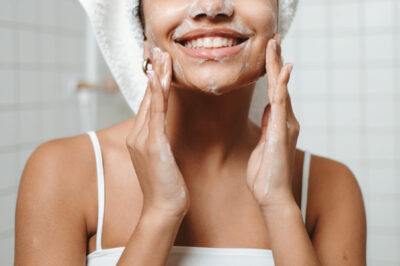



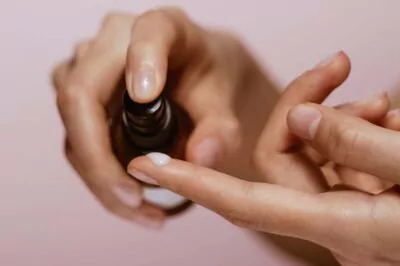
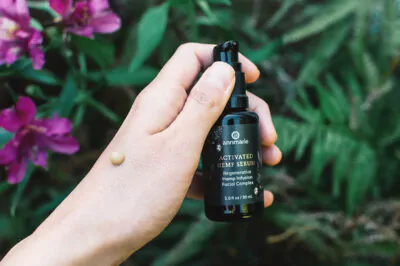
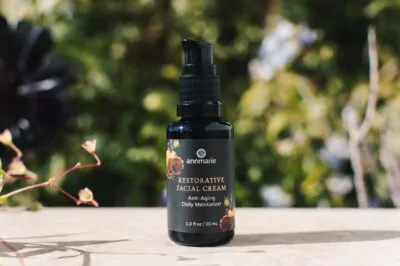
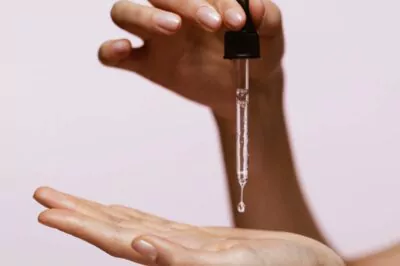
Leave a Reply